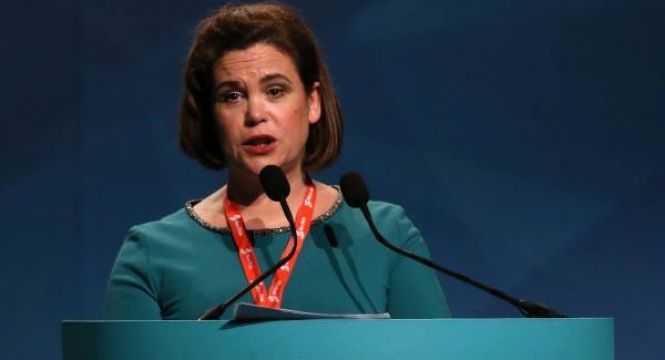The €350-a-week payments have dropped to between €200 and €300, which has affected the 150,000 people still in receipt of the benefit.
According to The Sunday Times, senior ministers are also to consider whether students returning to school and college should still be eligible for the PUP payment, with an estimated 30,000 students qualifying for the payment back in March.
Ms McDonald said that Minister for Finance Paschal Donohoe will have to reverse the decision to decrease the payment amount, saying it was wrong, particularly when Dublin and Donegal are facing tighter restrictions.
“I think he will have to change his mind because they’ve made a mistake, because what they’re doing is unfair, because what they’re doing will undoubtedly cause not just hardship, but what MABS (Money Advice and Budgeting Service) has described as a forthcoming tsunami of domestic debt,” she told RTÉ’s The Week In Politics.
The very reason to extend and maintain pandemic payments as they are is because we are still in the grips of a crisis. That money is supporting families and going straight back into the economy – it is literally paying bills and putting bread on the table – @MaryLouMcDonald #TWIP pic.twitter.com/Zs3PyYuUUA
Advertisement— Sinn Féin (@sinnfeinireland) September 27, 2020
“That’s not a smart thing to do socially or economically so Paschal will have to change his position because it’s the wrong position.”
Ms McDonald rejected Mr Donohoe’s claim that the Government cut the Covid-19 unemployment payments so the PUP could last longer for people.
“I think the very reason to extend and to maintain the payments is the fact that we are still in the grips of a crisis,” she added.
“If we thought initially six months ago that this was a transient crisis, that we could tough it out for six months and then we could go all come back up and breathe air that’s wrong.”
Taoiseach Micheál Martin last week defended the decision saying that, while the rates have been reduced, the scheme had been extended until next April.
Meanwhile, it has emerged that bookings for hotels across Ireland plummeted by 67 per cent in recent weeks, prompting a call by industry leaders for urgent action.
The latest survey from the Irish Hotels Federation (IHF) reveals a collapse in hotel bookings following the tightening of Covid-19 restrictions in Dublin.
The IHF said that after the Government announced its medium-term six-month plan for living with coronavirus, the weekly rate of new bookings declined sharply.
IHF president Elaina Fitzgerald Kane said: “It is now ‘make or break’ time.
“Urgent and unprecedented intervention from the Government is required to support tourism businesses and safeguard thousands of jobs throughout the sector.
“This must form a central plank of the Budget due to be announced next month.”
Before the outbreak of Covid-19, tourism supported 270,000 livelihoods, one in 10 of all Irish jobs.
It is now ‘make or break’ time. Government must step up to the mark with urgent measures to support tourism businesses and safeguard thousands of jobs https://t.co/Dcm8vtV0Oq @ElainaFitzKane @cathmartingreen @Paschald @mmcgrathtd pic.twitter.com/cZDOWohXpP
— Irish Hotels Federation (@IHFcomms) September 27, 2020
An estimated 100,000 of these jobs have been lost so far this year and a further 100,000 are at immediate risk, the IFH warned.
The survey’s results are based on the response from 298 properties accounting for a combined stock of 32,100 guestrooms spread throughout the country.
Hotel room occupancy rates across the country are at 40 per cent for September, 23 per cent for October and 12 per cent for November based on business currently booked.
This compares with rates of 89 per cent last September, 81 per cent last October and 82 per cent last November.







